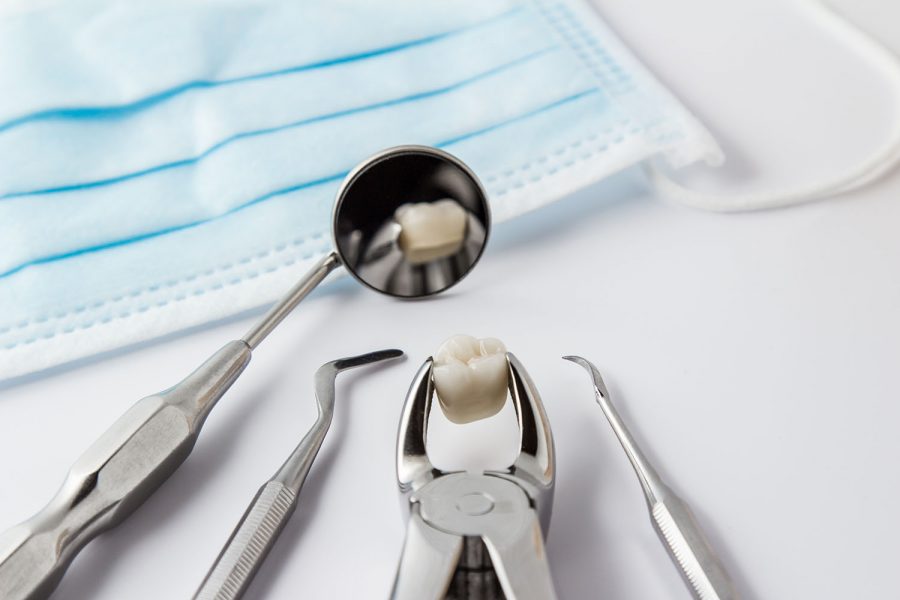Guest Opinion | The Doctor is in: Resources for accessible and affordable dental care
There is a constant divide between the quality of dental care that people from different backgrounds receive. Despite this divide, regular dental care is important.
Tooth extraction concept with an array of stainless steel dental tools and a mask with the extracted tooth clasped in the pincers and reflected in the mirror
August 31, 2021
The Centers for Disease Control and Prevention have cited that about 50 percent of adults aged 18–64 with private health insurance have dental care. This means that about 100 million Americans currently do not have dental health insurance. Lack of insurance creates a barrier for millions of people to meet their basic oral health needs. These barriers are visible when observing the dental care that patients from lower socioeconomic backgrounds, and those who are uninsured receive.
A common dilemma that dentists face includes determining how to allocate resources and provide the best quality of care for patients with financial constraints. More often than not, dentists face challenges in providing the highest quality of care with limited resources. The private practice model of dentistry increases the gap in how dental care is given and received. Treatment options for procedures like tooth decay are vastly different in uninsured patients in free clinics compared to insured patients in private practice clinics.
For example, a patient in a free clinic is treated with a simple procedure that results in a temporary fix. In a private practice setting, they would be treated with extensive surgeries and new 3D printed teeth. Insured patients also have opportunities for annual and semi-annual visits, and therefore have more access to preventative care than their less-advantaged counterparts.
Despite the gaps in dental-care delivery, regular dental cleanings by a trained professional are critical to good health. The mouth is the entry point to many bodily systems such as the digestive system and the respiratory system. Bacteria in the mouth can spread to the rest of the body causing many health issues down the road. Good oral hygiene care such as brushing and flossing keeps bacteria under control and limits harmful inflammation in the gums and oral cavity. Regardless of good brushing habits, plaque on teeth inevitably builds up. This plaque can harden and turn into tartar. Tartar does not respond to brushing or flossing and can only be removed by a dentist/oral health professional. If tartar remains on teeth unaddressed, it can lead to gum disease and tooth decay.
Luckily, for undergraduates who do not have dental health coverage, there are local resources that offer free/low-cost dental care. Their details are listed below:
- Provides free dental care in clinics around Iowa during different days in the fall
- This year largely late October and early November dates
- Ask patients to make an appointment in advance
- Insurance not required
2.) University of Iowa College of Dentistry
- Provide reduced prices for dental cleanings, insurance not required
- Pre-doctoral students, residents, private faculty all do dental care
- Comprehensive list of free clinics, insurance not required
- Largest network of free clinics around Iowa
- Can find a clinic by location, hours, or services provided here
—Arshi Munjal, Second-year University of Iowa Dental Student, Class of 2024



